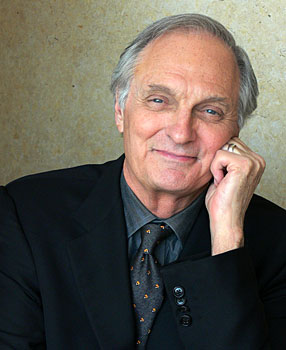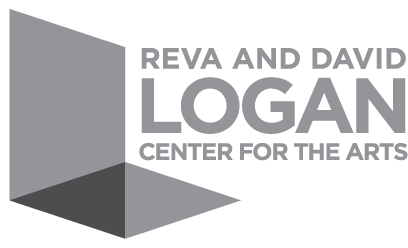Join Alan Alda, The Kavli Foundation, and the Alan Alda Center for Communicating Science for an innovative workshop, September 26-28, 2013, hosted by the Kavli Institute for Cosmological Physics (KICP) at the University of Chicago.
As host of the PBS program Scientific American Frontiers, Alan Alda interviewed 700 scientists around the world. Now, as a founding member of the Alda Center at Stony Brook University, he is helping scientists learn to communicate effectively with the public, including public officials, funders, employers, students, the media, and potential collaborators in other disciplines.
The workshop, led by Alan Alda and representatives from the Alda Center at Stony Brook University, will focus on science communication to reporters, philanthropists, policymakers and the public. This is a 3-day program, with two days of required workshops followed by an optional third day for participants who want more intensive practice. Participants will focus first on improving their skills in understanding and connecting with an audience, and speaking clearly about complex material. Then they will work on applying these skills productively in challenging settings, using scenarios and materials tailored to their real-world needs. This will include practice interviews by reporters on video.
The workshop will be run in two tracks - a master class for those with prior experience in public communication, policy or media and shorter introductory track.
This workshop is sponsored by the Kavli Foundation and the Kavli Institute for Cosmological Physics, with additional support from the Dean of Physical Sciences, the Logan Center for the Arts and the UofC Arts/Science Initiative.
As host of the PBS program Scientific American Frontiers, Alan Alda interviewed 700 scientists around the world. Now, as a founding member of the Alda Center at Stony Brook University, he is helping scientists learn to communicate effectively with the public, including public officials, funders, employers, students, the media, and potential collaborators in other disciplines.
The workshop, led by Alan Alda and representatives from the Alda Center at Stony Brook University, will focus on science communication to reporters, philanthropists, policymakers and the public. This is a 3-day program, with two days of required workshops followed by an optional third day for participants who want more intensive practice. Participants will focus first on improving their skills in understanding and connecting with an audience, and speaking clearly about complex material. Then they will work on applying these skills productively in challenging settings, using scenarios and materials tailored to their real-world needs. This will include practice interviews by reporters on video.
The workshop will be run in two tracks - a master class for those with prior experience in public communication, policy or media and shorter introductory track.
This workshop is sponsored by the Kavli Foundation and the Kavli Institute for Cosmological Physics, with additional support from the Dean of Physical Sciences, the Logan Center for the Arts and the UofC Arts/Science Initiative.
The workshop will be held at the Reva and David Logan Center for the Arts, the University of Chicago:
915 E 60th Street
Chicago, IL 60637
915 E 60th Street
Chicago, IL 60637
Organizing Committee
| James Cohen The Kavli Foundation | Randall Landsberg Kavli Institute for Cosmological Physics | Michael Turner Kavli Institute for Cosmological Physics |
Program
Workshop sessions include:
The workshop will have two tracks:
Track 1: Scientists in leadership positions often are deeply engaged in communicating with the public. They not only need to explain what they do and why it matters; they also need to speak for their institutions, respond to new developments, and make the case for the importance of science to a wide variety of lay audiences. For scientists like these, who are experienced communicators, Track 1 offers master classes to help them hone their skills. This is a 2-day program, with an optional third day for participants who want more intensive practice. Track 1 application is by invitation only.
Track 1 Schedule
Track 2: Many scientists are practiced in presenting to professional audiences, but have little experience or training in effective ways to communicate about complex science to those who don't speak the language of their discipline. Track 2 will give such scientists a strong foundation in communicating about their work with a variety of audiences, from students to employers to the media to potential collaborators in other disciplines. This 2-day program will take place on Friday and Saturday with optional lecture by Alan Alda, "Helping the Public Get Beyond a Blind Date With Science", on Thursday night.
Track 2 Schedule
- Improvisation for Scientists
- This approach helps scientists connect more directly, and respond more spontaneously, to others. It's not about acting or comedy - it's about paying dynamic attention to the people you're talking with.
- Distilling Your Message
- How to talk clearly and conversationally about complex science without "dumbing it down."
- Media Interview Skills
- How to convey the heart of your message concisely, while responding to sometimes unpredictable questions
The workshop will have two tracks:
Track 1: Scientists in leadership positions often are deeply engaged in communicating with the public. They not only need to explain what they do and why it matters; they also need to speak for their institutions, respond to new developments, and make the case for the importance of science to a wide variety of lay audiences. For scientists like these, who are experienced communicators, Track 1 offers master classes to help them hone their skills. This is a 2-day program, with an optional third day for participants who want more intensive practice. Track 1 application is by invitation only.
Track 1 Schedule
Track 2: Many scientists are practiced in presenting to professional audiences, but have little experience or training in effective ways to communicate about complex science to those who don't speak the language of their discipline. Track 2 will give such scientists a strong foundation in communicating about their work with a variety of audiences, from students to employers to the media to potential collaborators in other disciplines. This 2-day program will take place on Friday and Saturday with optional lecture by Alan Alda, "Helping the Public Get Beyond a Blind Date With Science", on Thursday night.
Track 2 Schedule




